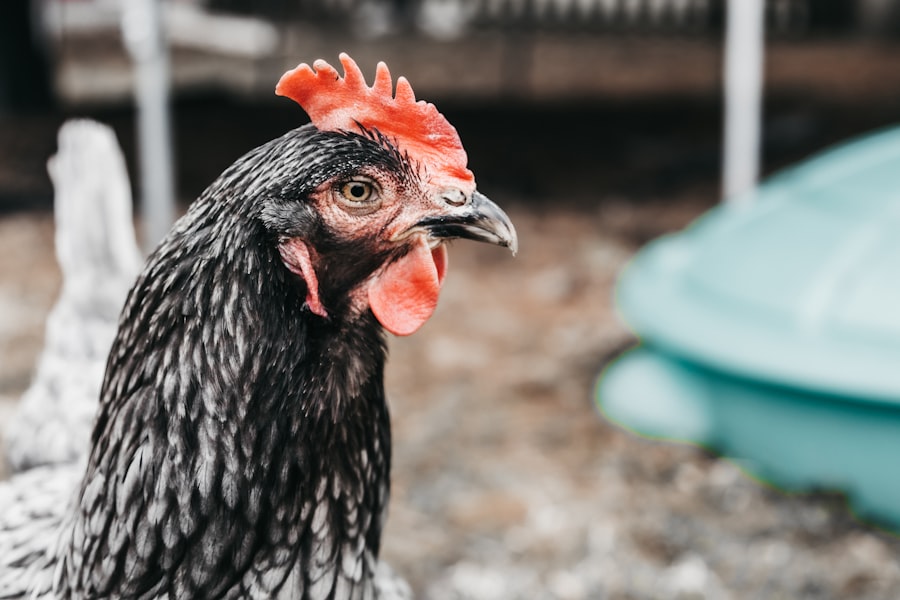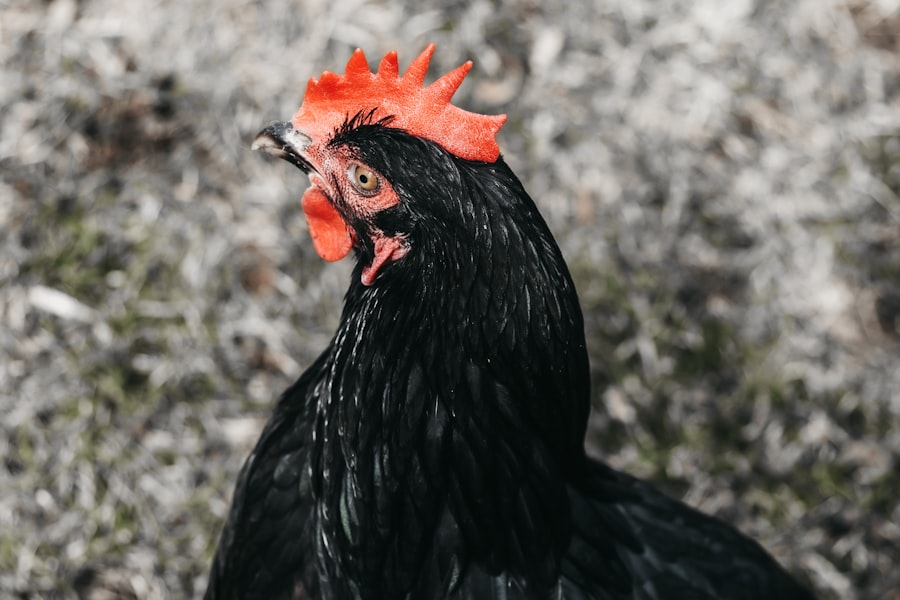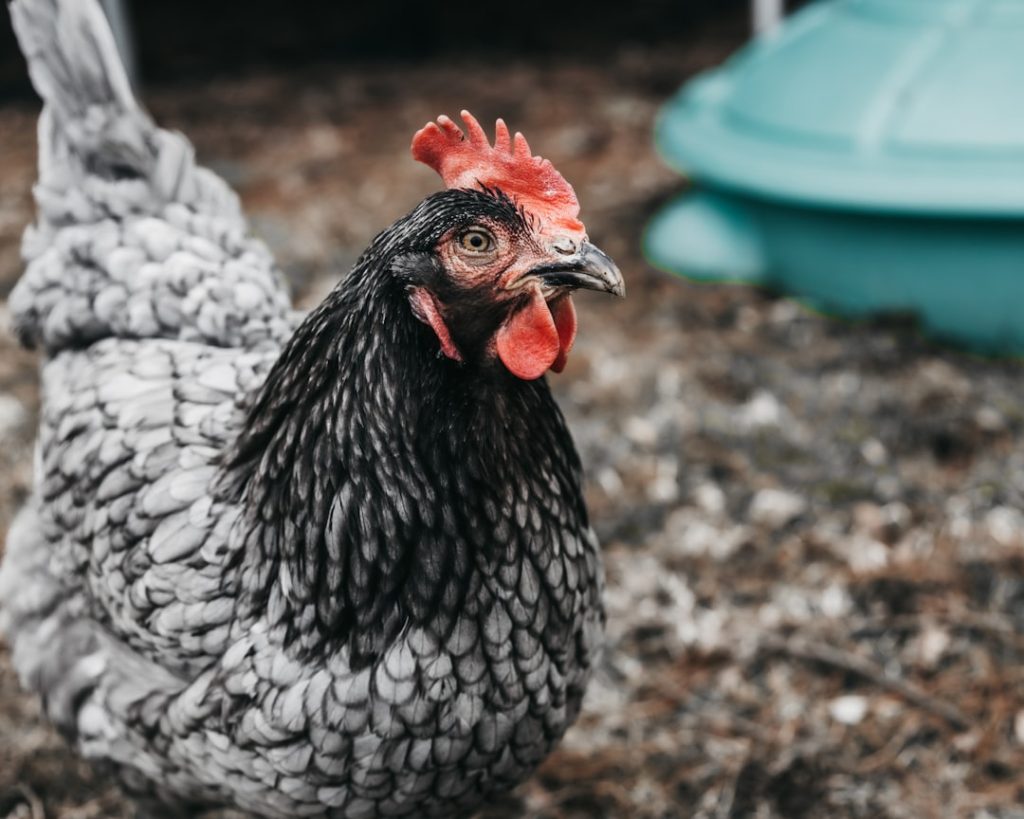Chickens are domesticated birds that have been raised for their meat and eggs for thousands of years. They are known for their ability to forage and hunt for insects, making them valuable assets in pest control. Ticks, on the other hand, are small arachnids that feed on the blood of mammals, birds, and sometimes reptiles and amphibians.
They are known carriers of various diseases, such as Lyme disease and Rocky Mountain spotted fever, making them a significant health concern for humans and animals alike.
Table of Contents
Key Takeaways
- Chickens are natural predators of ticks and can play a valuable role in controlling tick populations.
- Chickens help keep ticks away by actively seeking them out and consuming them as part of their diet.
- Using chickens for tick control can reduce the need for chemical pesticides and promote a more natural approach to pest management.
- Best practices for using chickens to control ticks include providing them with a suitable environment and ensuring they have access to areas where ticks are likely to be found.
- In addition to using chickens, there are other natural methods for controlling ticks, such as planting tick-repelling plants and creating tick-safe zones in outdoor spaces.
The Role of Chickens in Tick Control
Natural Tick Control
Chickens’ natural instinct to scratch and peck at the ground allows them to uncover and consume ticks that may be hiding in tall grass, leaf litter, or other areas where ticks are commonly found. This behavior not only helps reduce the tick population in the immediate vicinity but also prevents the spread of tick-borne diseases to humans and other animals.
Effective Alternative to Traditional Pest Control
Chickens are also effective at controlling tick populations in areas where traditional pest control methods may not be practical or environmentally friendly. Unlike chemical pesticides, which can have harmful effects on the environment and non-target species, chickens provide a natural and sustainable solution to tick control.
Sustainable Tick Management
By allowing chickens to roam freely in areas with high tick populations, such as yards, gardens, and pastures, property owners can effectively reduce the risk of tick infestations without resorting to chemical treatments. This approach not only helps to control tick populations but also promotes a healthier environment and reduces the reliance on chemical pesticides.
How Chickens Help Keep Ticks Away

Chickens help keep ticks away by actively hunting for and consuming them as part of their natural foraging behavior. Their constant scratching and pecking at the ground disturb the habitats of ticks, making it more difficult for them to thrive and reproduce. Additionally, the presence of chickens can deter small mammals, such as mice and voles, which are common hosts for ticks, from entering the area, further reducing the risk of tick infestations.
Furthermore, chickens produce waste that contains natural compounds that repel ticks and other pests. Their droppings contain ammonia, which has been shown to repel ticks and other insects. By allowing chickens to roam freely in areas where ticks are a concern, property owners can take advantage of this natural repellent to create a less hospitable environment for ticks.
Benefits of Using Chickens for Tick Control
There are numerous benefits to using chickens for tick control. Firstly, chickens provide a natural and sustainable solution to tick infestations without the need for chemical pesticides. This is particularly important for organic farms and gardens where chemical treatments are not an option.
By allowing chickens to roam freely in these areas, property owners can effectively reduce the risk of tick infestations while maintaining a healthy and environmentally friendly environment. Additionally, chickens offer a cost-effective alternative to traditional pest control methods. Once established, chickens require minimal maintenance and can continue to provide effective tick control without the need for ongoing expenses.
This makes them an attractive option for property owners looking to reduce their reliance on chemical treatments and lower their overall pest control costs. Furthermore, using chickens for tick control can have positive effects on soil health. As chickens scratch and peck at the ground, they aerate the soil and incorporate organic matter into the top layer, which can improve soil structure and fertility.
This not only benefits the overall health of the ecosystem but also creates a more hospitable environment for beneficial insects and microorganisms that can help keep tick populations in check.
Best Practices for Using Chickens to Control Ticks
When using chickens for tick control, there are several best practices to keep in mind to ensure their effectiveness. Firstly, it is important to provide chickens with a suitable environment that allows them to exhibit their natural foraging behavior. This includes access to areas with tall grass, leaf litter, and other potential tick habitats where they can actively hunt for ticks.
Additionally, property owners should consider the breed and number of chickens needed to effectively control tick populations in their area. Some chicken breeds are more adept at foraging and hunting for insects than others, so selecting breeds known for their insect-hunting abilities can improve the success of tick control efforts. Furthermore, having an appropriate number of chickens relative to the size of the area being treated is essential to ensure adequate coverage and tick control.
It is also important to provide chickens with supplemental feed to ensure they receive proper nutrition while foraging for ticks. While chickens are natural insect hunters, providing them with a balanced diet can help support their overall health and improve their ability to control tick populations effectively.
Other Natural Methods for Controlling Ticks

Natural Landscaping
One effective method is landscaping with plants that naturally repel ticks, such as lavender, rosemary, and marigolds. These plants contain natural compounds that repel ticks and other pests, creating a less hospitable environment for them.
Diatomaceous Earth
Another natural method for controlling ticks is the use of diatomaceous earth, a fine powder made from fossilized algae. When applied to areas where ticks are commonly found, diatomaceous earth can effectively desiccate and kill ticks without posing harm to humans or animals. This natural alternative to chemical pesticides provides an environmentally friendly solution to tick control.
Maintaining a Well-Groomed Landscape
Furthermore, maintaining a well-groomed landscape can help reduce tick populations by eliminating potential habitats where ticks may thrive. Regular mowing of grass, removal of leaf litter, and trimming of shrubs can create a less favorable environment for ticks and other pests.
The Value of Chickens in Tick Prevention
In conclusion, chickens play a valuable role in tick prevention by actively hunting for and consuming ticks as part of their natural foraging behavior. Their ability to reduce tick populations without the need for chemical pesticides makes them an attractive option for property owners looking for sustainable and cost-effective pest control solutions. By implementing best practices for using chickens to control ticks and considering other natural methods for tick prevention, property owners can effectively reduce the risk of tick infestations while promoting a healthy and environmentally friendly environment.
Overall, the value of chickens in tick prevention cannot be overstated, as they offer a natural and sustainable solution to a significant health concern for humans and animals alike.
If you’re considering adding chickens to your backyard, you may also want to think about adding turkeys. According to a recent article on Poultry Wizard, turkeys can be a great addition to your flock and can even help keep ticks away. The article discusses the importance of providing a coop for turkeys and offers helpful tips on how to care for them. If you’re interested in learning more about keeping turkeys, be sure to check out the article here.
FAQs
What are ticks and why are they a concern?
Ticks are small arachnids that feed on the blood of mammals, birds, and sometimes reptiles and amphibians. They are a concern because they can transmit diseases such as Lyme disease, Rocky Mountain spotted fever, and anaplasmosis to humans and animals.
Do chickens help keep ticks away?
Yes, chickens can help keep ticks away. They are natural foragers and will eat ticks, as well as other insects and pests, while they are free-ranging.
How effective are chickens at controlling tick populations?
Chickens can be effective at controlling tick populations in their immediate vicinity. However, they may not eliminate all ticks in a given area, especially if the tick population is large.
What breeds of chickens are best for controlling ticks?
Breeds such as the Rhode Island Red, Plymouth Rock, and Sussex are known for their foraging abilities and can be effective at controlling ticks. However, any breed of chicken that is allowed to free-range can help with tick control.
Are there any drawbacks to using chickens for tick control?
One potential drawback is that chickens may also eat beneficial insects and plants while foraging for ticks. Additionally, chickens may not be able to completely eliminate tick populations in larger areas.
Meet Walter, the feathered-friend fanatic of Florida! Nestled in the sunshine state, Walter struts through life with his feathered companions, clucking his way to happiness. With a coop that’s fancier than a five-star hotel, he’s the Don Juan of the chicken world. When he’s not teaching his hens to do the cha-cha, you’ll find him in a heated debate with his prized rooster, Sir Clucks-a-Lot. Walter’s poultry passion is no yolk; he’s the sunny-side-up guy you never knew you needed in your flock of friends!







